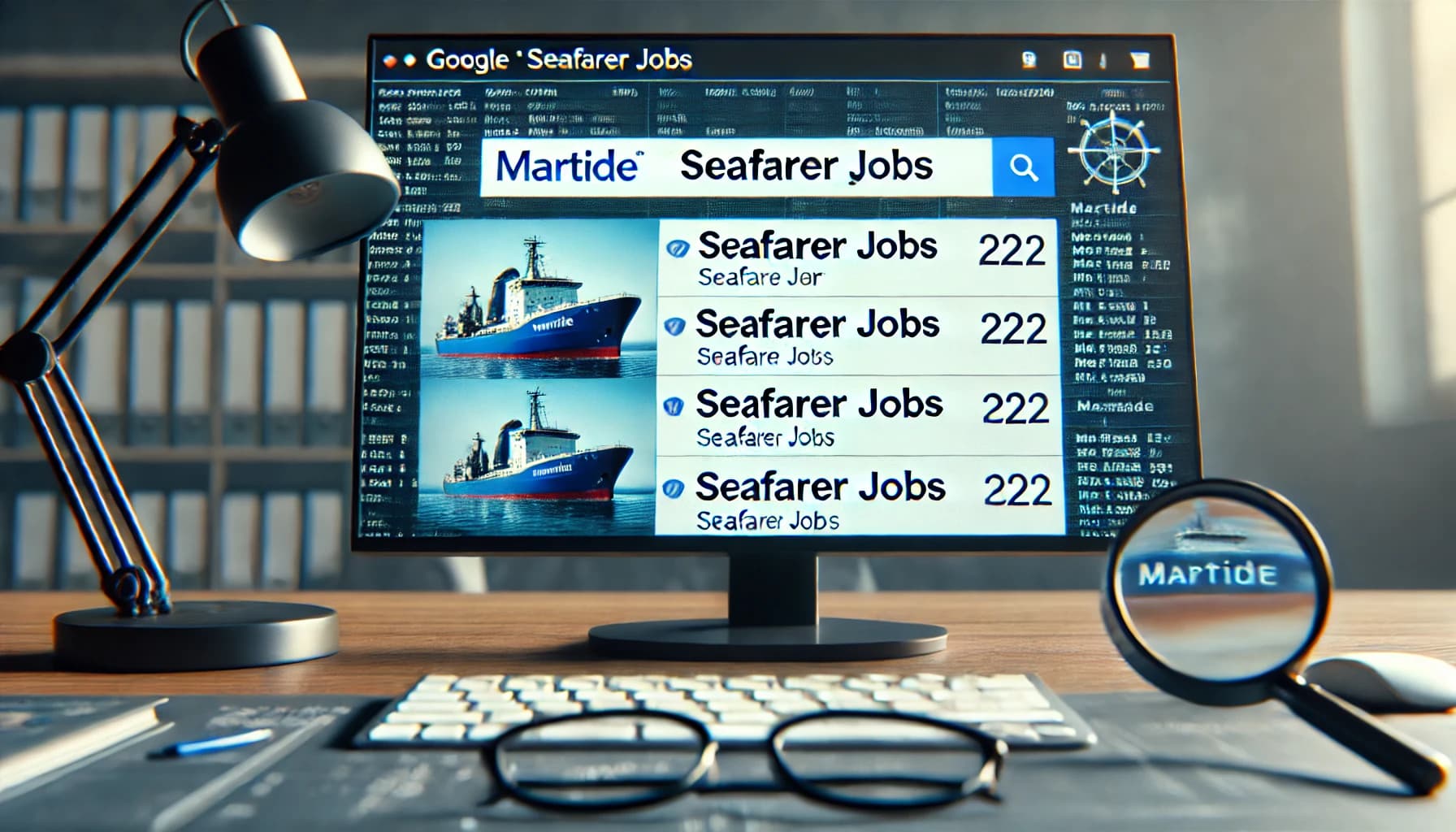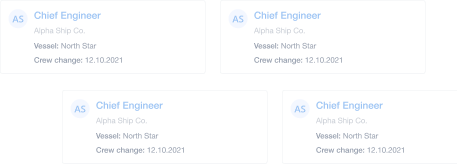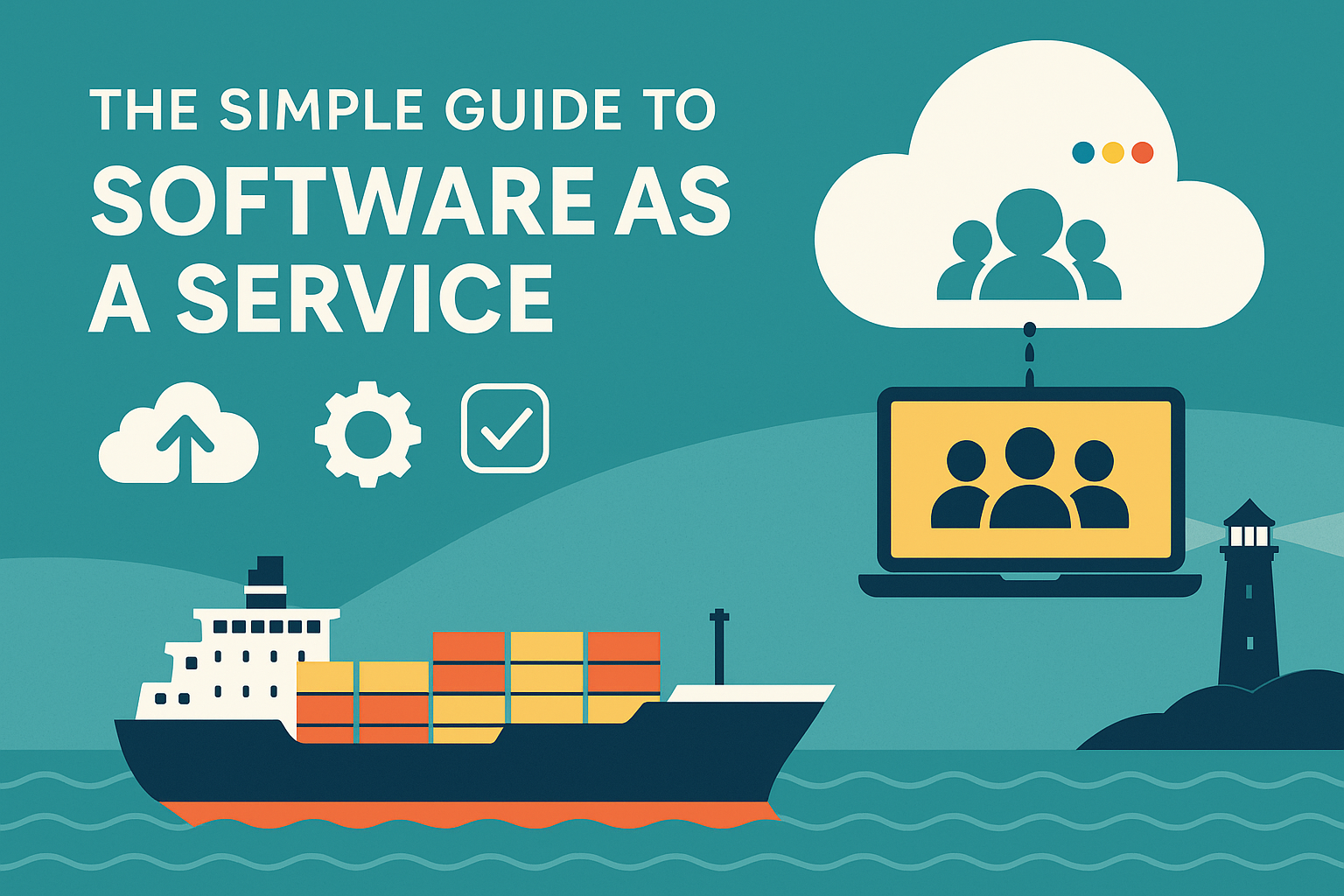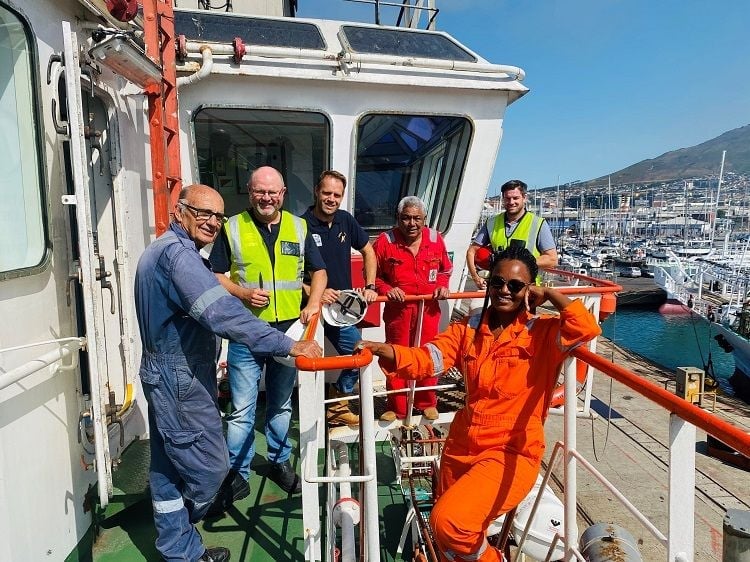How Keywords & Filters Help Your Maritime Recruitment Ops

If you've ever crafted content for your shipping company, or maritime recruitment or manning agency's website, written a blog post or created posts for social media, you probably know about keywords. And, most likely, you associate the concept of keywords with search engines and how they help optimize your ranking on Google.
And for those who are unfamiliar with them, a keyword is a term or phrase used in your website content that, as nearly as possible, corresponds to the words and phrases users enter into search engines. Keywords are the foundation of search engine optimization (SEO.)
So that’s the lowdown on keywords, but did you know there's more to them than helping your website rank?
Yes, using keywords in your website’s wording to help clients find your business is a must. But did you know that you can also use keywords to power your maritime recruitment efforts and attract another audience?
We're talking about seafarers.
But how do keywords fit into the maritime recruitment process?
How can keywords help your maritime recruitment operations?
Think about when you have an upcoming crew change. Typically, Crew Managers and Manning Agents will join forces to find and hire qualified seamen and women for the ranks that are off-signing.
And that often includes publishing seafarer job adverts with the rank’s requirements to advertise open positions. These job adverts contain crucial words or short phrases - AKA keywords - that applicants search for when they use the internet to look for a maritime job online.

Read more: Enjoy More Efficient Maritime Recruitment for FREE!
For example, keywords in a seafarer job advert are terms like “Able Seaman job”, “Chief Officer job”, “Deck Cadet job” and so on. The person looking for work will have typed one of these phrases (or something similar) into a search engine such as Google and if your job advert contains those words, your website - and your job ad - have a higher chance of appearing near the top of the page.
Keywords at the core of your maritime recruitment efforts
Now more than ever, seafarer job adverts are appearing on social media, on online crewing job boards, and via mobile seafarer job apps. And SEO and keywords are helping qualified crew members find these posts.
Read more: What is Mobile Maritime Recruitment?
However, a word of warning, to rank highly in search engines like Google and Bing you need to do some simple keyword research and make sure that you’re using relevant words and phrases in your job adverts.
And what happens when you don't rank highly? You’ll very likely be missing out on great seafarer candidates!
How can Martide help you use keywords for easier maritime recruitment?
Good news for anyone who hires seafarers: Your maritime recruitment process could be a lot more efficient when you use keywords, especially if you're using maritime crew management software such as Martide.
Our job adverts are simple to create and let you fill in a description in which you can add your relevant keywords. For example: “Waves Manning Agency is looking to fill an Able Seaman job by the 13th of June. To apply for our Able Seaman vacancy, please click the button below.”
We also do lots of SEO work behind the scenes to ensure that Google (and other sites such as Bing and Yahoo) recognize our seafarer job adverts and place them high up on the page in the search engine results.

This increases the chance of seafarers who are looking for work, finding your vacancies and then applying for them.
Using filters in Martide’s maritime crew management system
It’s not just using keywords in our online seafarer jobs board that helps you attract relevant candidates for your vessels, we also apply the use of filters to our maritime crew management software system to make crew recruitment simpler.
When you use Martide to find and hire crew, either your company, or a seafarer themselves, will create a personal profile.
A seafarer’s profile page is detailed and includes information about their work experience, education, nationality, skills, physical specifications, and languages spoken.
It also lists their emergency contacts, salary and vessel preferences, readiness date, bank accounts and their social media accounts.
A seafarer’s documents, including medicals, visas, licenses, certificates, endorsements, employment contracts, payslips, and appraisals are also securely stored in their profile too.
What this means is that as well as being a handy centralized location to find a specific seafarer’s information and documents, once a profile has been created, they will become part of our candidate database.
It goes without saying that in Martide’s seafarer database, there are thousands of profiles. So to shorten the time it takes to browse resumes and find suitable applicants, you can quickly search for who is relevant to you using filters.

Seafarers can be filtered and narrowed down using the following criteria: General, Assessments, Documents, Employment & Work History, Medical, Personal, Planning, Status or Visa.
Within these sections, the filters enable you to search by:
- General: name, email, seafarer pool, rank, manning agent, availability dates, pseudo ID, Martide ID and ex-crew.
- Assessments: assessment type.
- Documents: document type, issuing country, ECDIS type, document number, valid through date and no document uploaded.
- Employment & Work History: actual sign on and off dates, estimated arrived home dates, vessel worked on, vessel and engine type, rank, trading areas, nationalities sailed with and maximum crew complement sailed with.
- Medical: medical test type and valid until date.
- Personal: home country and airport, date of birth, age, salary expectations, language, nationality, gender, phone number, birth province and country, race and religion.
- Planning: planned between dates, not planned between dates and planned status.
- Status: master status (applicant or rejected)
- Visa: country.
So, for example, let’s say you need to find an Able Seaman for an upcoming crew change. Ideally, the seafarer needs to have more than two years of experience, be of a certain nationality, and hold all of the necessary credentials and medical checks. You also want them to be fluent in English.
Select the filters you want to narrow down your candidates by and you’ll only see seafarers who have entered Able Seaman as their rank and who meet your prerequisites for experience, nationality, credentials and language skills.
Once you’ve found seafarers who meet your requirements you can then reach out to them with a view to interviewing and potentially hiring them. You can also add seafarers to a ‘Seafarer Pool’ - a collection of similar, suitable crew members - which will help you keep track of your various ranks and vessels.

With the myriad of requirements needing to be met for each crew member and vessel type, Crew Managers and Manning Agents spend a lot of time sifting through resume after resume. But this tiresome task can be streamlined and fast-tracked by utilizing a solution such as Martide.
Thanks to the ability to filter candidates based on criteria, maritime recruitment and crew planning has never been faster and easier.
How Martide’s maritime recruitment and crew management system can help you
It’s not just about keywords and filters. Martide's all-in-one platform, specifically designed for the maritime industry, is an easy-to-use online maritime recruitment platform and crew planning software that can do a whole lot more.
From customizable recruitment pipelines to making sure all working gear is ordered and accounted for through to seafarer travel arrangements and document storage, our crewing system is the all-rounder that your recruitment and crew planning teams will thank you for.
Want to learn more about our maritime industry software solutions? Schedule your free, no-strings-attached demo today and we look forward to talking with you soon.

Eve Church
Eve is Martide's content writer, publishing regular posts on everything from our maritime recruitment and crew planning software to life at sea. Eve has been writing professionally for more than two decades, crafting everything from SEO-focused blog posts and website landing pages to magazine articles and corporate whitepapers.
UK



